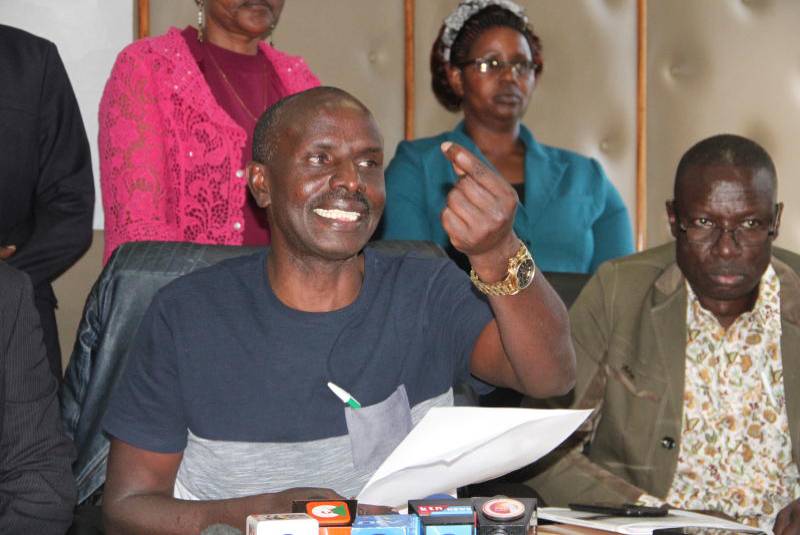×
The Standard e-Paper
Smart Minds Choose Us

Kenya National Union of Teachers(KNUT) Secretary General Wilson Sossion address press on 29th December 2018 at KNUT office in Nairobi. [Edward Kiplimo,Standard]
Teachers in Kenya have been staging strikes for the past three decades, but none has really pushed the Government to the wall. And, any present or future strike rehearsals to negotiate with the government for an improved package for the services they render to learners may not bear fruit that trickles down to the classroom teacher after all.